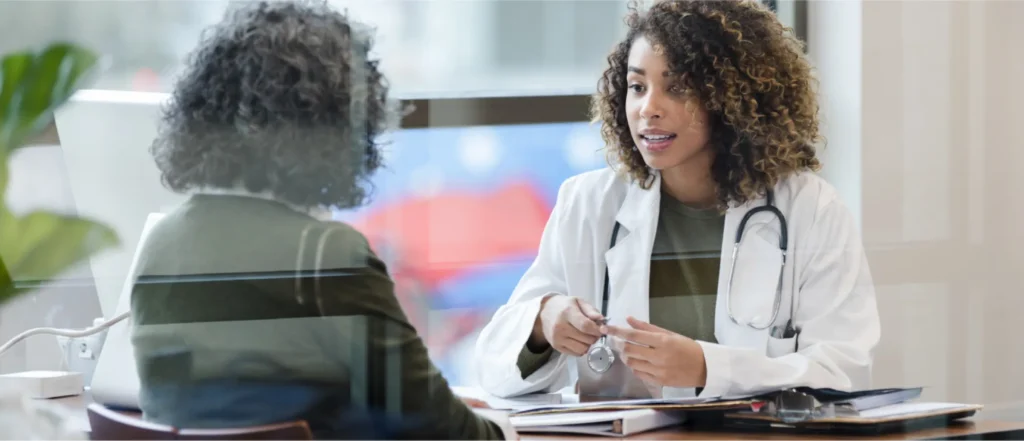How to Choose a Gastroenterologist
When seeing a gastroenterologist for their first colonoscopy, patients may assume the doctor will be asking all of the questions—questions about diet, level of physical activity, family history, and symptoms related to GI health. However, patients should be prepared to ask their gastroenterologist some important questions as well.
Ask About the GI Doctor’s Adenoma Detection Rate

The most important question to ask a gastroenterologist is, “What is your adenoma detection rate (ADR)?” Adenomas are precancerous polyps that a GI specialist will identify and remove during a colonoscopy. ADR is the proportion of individuals undergoing a colonoscopy who have one or more adenomas, or colon polyps, detected.
A gastroenterologist’s adenoma detection rate will differ for male and female patients. ADR should be at least 25 percent for male patients and at least 15 percent for female patients. The purpose of scheduling a colonoscopy is to prevent colon cancer, so always pick a physician whose ADR percentages are greater than the national average.
You may feel like you are being too bold in asking for numbers and percentages from your gastroenterologist, but asking about a doctor’s adenoma detection rate is extremely common and necessary. Adenoma detection rate distinguishes the best gastroenterologists in the profession. The physician should be proud to share their ADR.
Find a Gastroenterologist
Locate a physician who performs a variety of colon cancer screenings near you.
Ask the Gastroenterologist About Withdrawal Time
Potential patients should also inquire about average withdrawal time. The withdrawal time refers to the amount of time that it takes for a gastroenterologist to remove the colonoscope after reaching the beginning of the colon, called the cecum. High adenoma detection rates are usually associated with a longer withdrawal time, which is at least six minutes.
Colon polyps that are left in the colon will grow and can develop into colon cancer. Adenoma detection rate and withdrawal time are two measures that should matter to you in ensuring that the gastroenterologist finds and removes precancerous adenomatous polyps and lesions.
A patient can help make sure the colonoscopy is a success by reading and following the bowel preparation instructions given by the GI specialist to ensure the colon is completely cleansed for the colon cancer screening. A high adenoma detection rate, longer withdrawal time and a complete bowel flush are the three most important components for a thorough colon cancer screening (source: Advocate Health Care E-News).